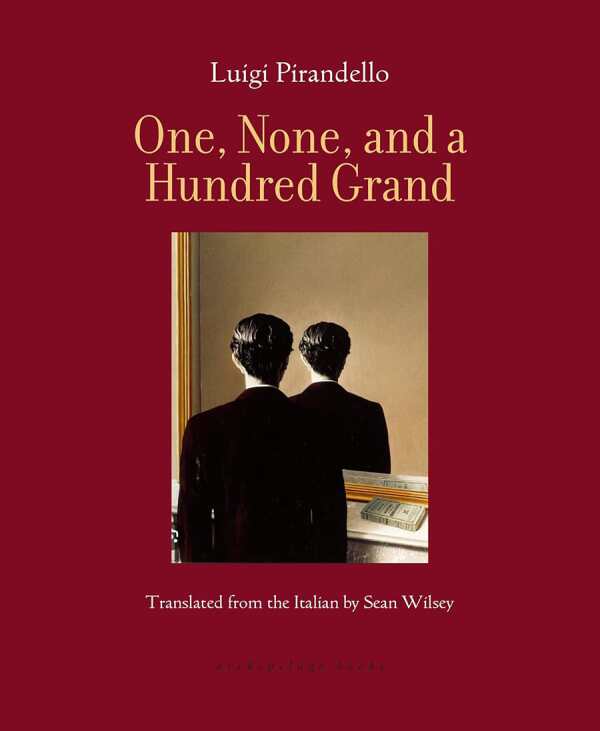One, None, and a Hundred Grand
In Luigi Pirandello’s philosophical novel One, None, and a Hundred Grand, a personal identity crisis leads to profound explorations of the self and ego.
After Vitangelo’s wife, Dida, reveals to him that his nose tilts to the right, he becomes perturbed. He begins to reckon with his multitude of selves, each defined by how others perceive him. It’s a sort of dissolution: Vitangelo wonders whether any of his selves are authentic, rebelling against each label assigned to him. Dida grants him the playful, dismissive appellation “Gumdrop”; one coworker calls him “Dear Vitangelo”; he himself dubs his reflection in the mirror “Maggot.” The recorded number of his selves grows at an exponential rate as the novel moves through his fears and anxieties, eschewing conventional structures.
Vitangelo concludes that the only way to achieve the truest version of himself is through the drastic upheaval of the expectations of those around him. As he reflects on his father’s absence, his thoughts turn into actions, and a rapid drama unfolds. Having inherited his father’s bank and profession, Vitangelo, tired of being labeled a “usurer” by his hometown of Oncemoney, resolves to give away a key property and liquidate the institution, withdrawing his money from the business. This perturbs his dependent coworkers, Dida, and his father-in-law.
Though first published a century ago, the novel has a contemporary sensibility. Through associative leaps, Vitangelo determines that the institutions around him are corrupt and dysfunctional. His anarchic impulses emerge as an unlikely solution to circumstances he feels otherwise helpless against, as he is described as either mad or harmless.
A lucid, ruminative novel, One, None, and a Hundred Grand amplifies estrangement and alienation from institutions, society, and the self, exploring the consequences of compartmentalization in the extreme.
Reviewed by
Mike Good
Disclosure: This article is not an endorsement, but a review. The publisher of this book provided free copies of the book to have their book reviewed by a professional reviewer. No fee was paid by the publisher for this review. Foreword Reviews only recommends books that we love. Foreword Magazine, Inc. is disclosing this in accordance with the Federal Trade Commission’s 16 CFR, Part 255.

